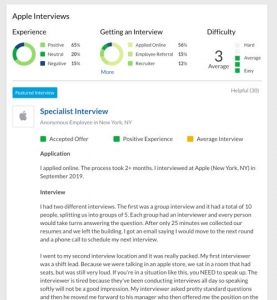Many brands these days are looking to use digital marketing to establish better long-term relationships with smaller groups of existing customers. They do this as a way of building trust and their expanding audience. This requires an approach often referred to as “community marketing.”
Sponsored Communities
One major way to strengthen relationships with communities is with word-of-mouth marketing.
The other main way community marketing can work for you is with investment in “sponsored communities.”
Why sponsor a community? The main benefits include low costs, high customer loyalty, increased authenticity, and more possibilities for innovation. When done correctly, sponsored communities won’t just create more brand-loyal evangelists, they’ll grow your audience over time.
If you’re still reading this, you’re probably already thinking of the community you want to reach. It may be a state, town, or even just a neighborhood. Whoever it is, your first step is to do the research.
Who Is Your Community?
First, you’ll need a rich description of your community.
The goal is to get into the minds of your audience: what motivates them, what are their aspirations and fears, what are their unmet needs, and, importantly, how do they feel about your brand? While there are many ways to do it, all methods require research: talking to members of the target audience. This can be achieved through focus groups, online surveys, or one-on-one interviews. Regardless of how you do it, you need to get a productive dialog going.
From there you can build a range of personae that captures each type of community member. These personae can be broken up by age, employment, background, interests—really any way you want do it. Now you have a crystal-clear picture of your customer community!
What Brand Story Will You Tell Your Community?
Before you can reach your community, you have to think about how you can motivate people to care, listen, engage, buy, and stay. The key to this, of course, is clear and aligned story.
Think: what is that one thing your brand can hang its hat on, that thing that truly separates it from a sea of sameness? Play the “so-what” game, and don’t be afraid to push back. Really expand your thinking about what makes your brand truly special. Then capture that essence in a single brand story that will provide the foundation for your brand strategy and activation.
Also think hard about how your audience feels about your brand. What did you learn in your research, are there things you should change? What tactics or methods can you apply that will help your brand bring this community closer together? Integrate these ideas in your story work.
Which Platforms Allow You to Reach Your Community?
Here’s the part where you begin to strategically apply your story to your community in real time.
When it comes to digital platforms, there are tons of options available. TikTok is popular right now, but don’t assume it will work for your specific community. Audiences on TikTok are young and they skew toward pop culture—is that your audience? If it is, fabulous! But if not, keep looking.
If your audience is young or middle-aged professionals, LinkedIn will be the appropriate platform. Twitter is very oriented toward news and topical conversation; Instagram and YouTube have a broader appeal and offer lots of possibilities for paid advertising; and Facebook has an older, family-oriented audience. Other options include Slack, Clubhouse, Spectrum, NextDoor, and plenty more. Investigate them all.
Most community marketing requires that your brand be prominent on at least two of these platforms. This is where your work in story and research should pay off. In essence, you’re reminding your audience why they value your brand and inviting them to take a closer look at who you are. Focused, successful digital strategies take time and effort, but in the end they enlighten you, as the brand, as much as they enlighten your customers.
Where Are You Taking Your Community?
Once you’ve done the audience research, brand story work, and executed on your digital strategy, you’ll need to take your community somewhere. And I mean that literally!
Bringing people together is at the heart of community life. So all of this work must result in one thing: a public event or series of public events. These can be anything from a conference to a fair to an anniversary party celebrating your brand. The reason doesn’t actually matter, but plan something fun and give your community something to look forward to: free stuff, good deals, or a bit of entertainment.
If you don’t have the budget for a live event, don’t worry. During the pandemic, many marketing events took place online with great success. Webinars, free trainings, ask-me-anything sessions, live-streamed performances, and much more. Get creative and think of a way to bring your community to you.
The Takeaway
Investing in your audience with community marketing is how you expand your reputation by digging deeper and connecting with those who already buy from you. The point of all this, of course, is to highlight your brand in the minds of your customers as a way of getting them talking to each other about your brand. Once you do that, you’ll watch your brand story gain traction and start to move on its own, building trust, loyalty, and success anywhere it goes.
Digital & Social Articles on Business 2 Community(49)
Report Post





